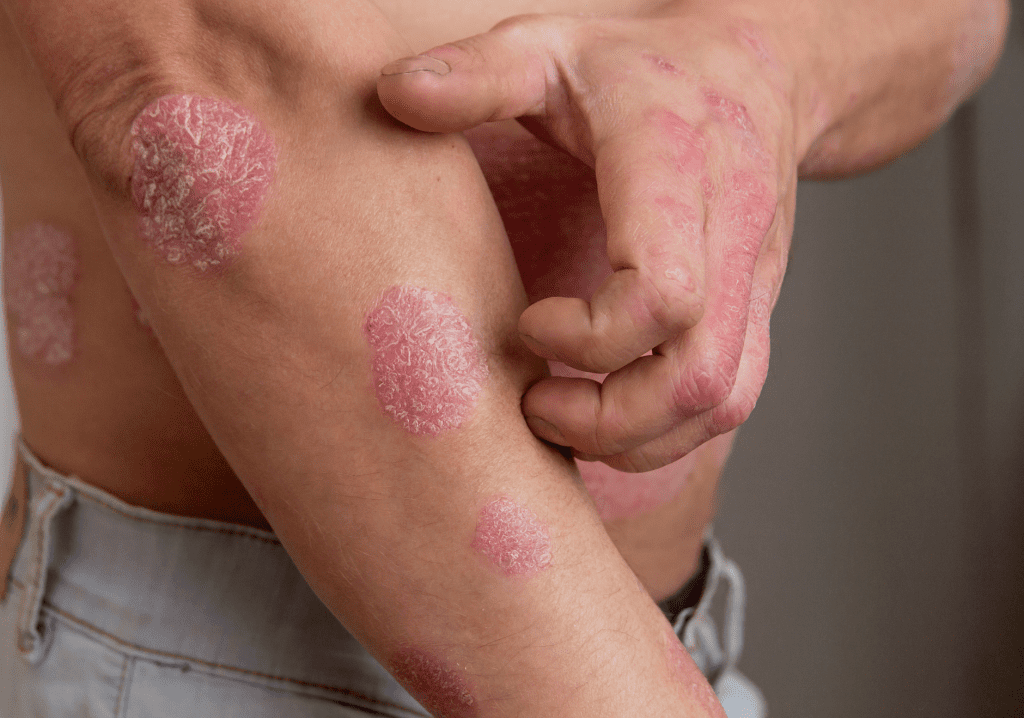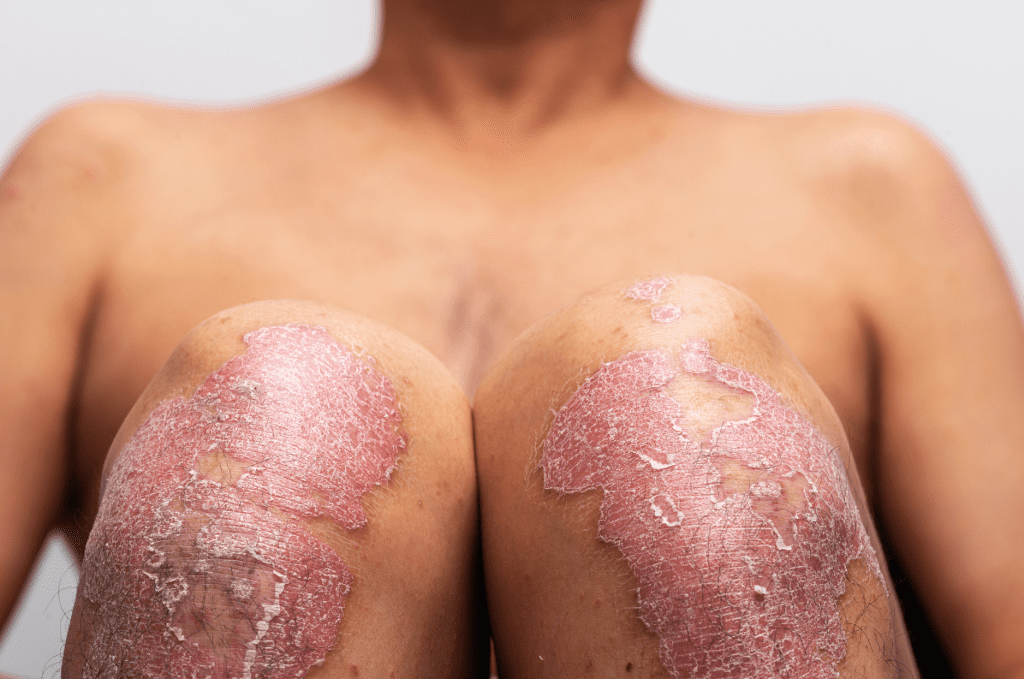
Psoriasis is a chronic skin condition that affects more than 7.5 million people in the United States. While it’s not contagious, it can cause significant discomfort and impact quality of life, and understanding psoriasis is the first step toward effective management.
On that same note, August is Psoriasis Awareness Month, which means it’s the perfect time to educate and empower those living with this chronic skin condition.
What Exactly Is Psoriasis?
Psoriasis isn’t just dry, itchy skin. It’s an autoimmune condition that causes skin cells to regenerate too quickly. Instead of shedding normally, these extra cells build up on the surface, creating red, inflamed patches topped with thick, silvery scales. These spots can appear anywhere commonly on elbows, knees, scalp, or lower back and may itch, crack, or even bleed.
Why Does It Happen?
Researchers know psoriasis is driven by an overactive immune response, but why this happens isn’t fully understood. Genetics often play a role, and flare-ups can be triggered by stress, infections, cold weather, alcohol, and certain medications. The condition isn’t contagious, but it can deeply impact daily life if left unmanaged.

The Hidden Impact of Psoriasis
Psoriasis is more than skin-deep. Beyond the visible patches, the condition is linked to serious health concerns, including psoriatic arthritis, heart disease, diabetes, and depression. Chronic discomfort, pain, and the emotional toll of visible symptoms can significantly affect confidence and mental health. That’s why early intervention is so important.
What Happens If It Goes Untreated?
Ignoring psoriasis can make flare-ups more severe and frequent. Over time, untreated psoriasis can lead to painful skin fissures, nail changes, permanent joint damage, and increased risk of other autoimmune conditions. Managing psoriasis isn’t just about appearance, it’s about protecting your overall health.
What Happens If It Goes Untreated?
Moisturize Every Day: Thick, fragrance-free creams or ointments lock in moisture and reduce scaling. Apply right after a shower for best results.
Stick to Your Treatment Plan: Even if your symptoms improve, stopping medication too soon can trigger a flare-up. Follow your dermatologist’s instructions closely.
Manage Stress Proactively: Stress is one of the biggest triggers. Try deep breathing, meditation, or gentle exercise like yoga to keep stress levels low.
Avoid Common Triggers: Smoking, alcohol, certain medications, and harsh skincare products can worsen psoriasis. Your dermatologist can help you create a safe routine.
Schedule Regular Dermatology Visits: Psoriasis can change over time. Ongoing care ensures your treatment stays effective and helps prevent complications like psoriatic arthritis.

How Our Dermatologists Can Help
You don’t have to live with the discomfort and unpredictability of psoriasis. At Bethany Medical Clinic, our board-certified dermatologists provide:
- Precise Diagnosis: We don’t just look at your skin, we evaluate your full medical history, lifestyle, and triggers to determine the exact type of psoriasis you have and any related health concerns.
- Lifestyle Coaching: We’ll help you identify flare-up triggers like stress, smoking, and certain foods, and provide practical strategies to avoid them. Plus, we recommend skincare routines and hydration tips that really work.
- Long-Term Support – Psoriasis is a lifelong condition, but with regular check-ins and personalized adjustments to your treatment plan, we help you stay ahead of flare-ups and protect your skin health.
Take the First Step This Psoriasis Awareness Month
Don’t let psoriasis control your life. With the right care, you can manage flare-ups, protect your skin, and feel confident again. Schedule a visit today!
